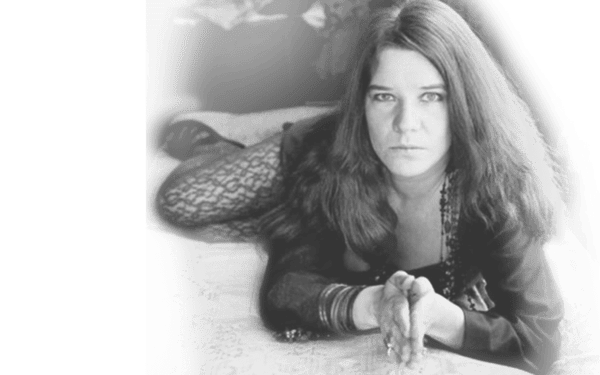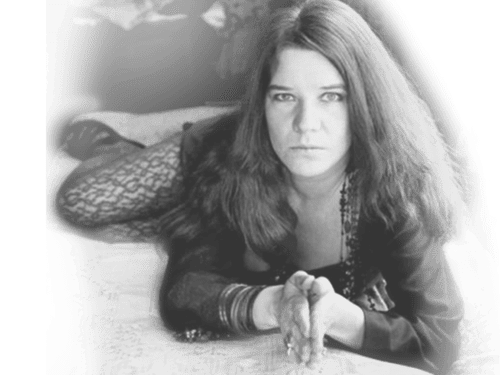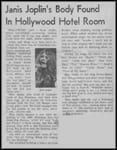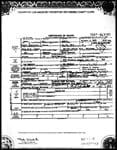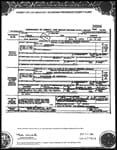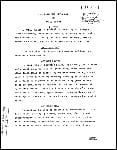[Note. The plan to write this article originated, following the receipt of a pre-release cassette copy of the “Threadgill’s Supper Session – Second Helpings” recording in early April of 1996. In May/June that year, I undertook a four week long trip to Texas.].
The musical life of Austin, Texas isn’t the sole preserve of the legion of clubs which flourish and wither, and flourish again on 6th Street. Kicking off at the Guadalupe River, if you drive North on Lamar Boulevard, you’ll find Waterloo Records at the 6th Street junction, with the first of three Waterloo Ice Houses located only a few doors away. The second Ice House is situated just off Lamar at 38th Street. Threadgill’s Restaurant is located on the West side of North Lamar, at 6416 to be precise, between the junctions with Koenig Lane and Justin Lane.
In 1933, following the prohibition era, Travis Country voted to go wet. Twenty four year old Kenneth Threadgill purchased Austin’s first beer licence and opened a bar, on what was then the northern extremity of town. The chosen site, an abandoned filling station. Four decades later, when the city fire marshall’s closed Kenneth’s establishment, he even refused to empty the ashtrays. Threadgill was a sometime country singer, as well as barman, and his tavern soon became a favourite hangout for University of Texas students. At the end of World War II, initially on Friday evenings and subsequently on Wednesdays, he organized shows where local folk and country musicians could get up and play on the bar’s cramped stage. It’s still cramped, even these days. Threadgill would regularly yodel and perform Jimmie Rodgers songs at these gatherings. In the early sixties, Threadgill took a young Janis Joplin under his wing for a short period. She subsequently moved to California, found fame and we know too well the sad and desperate end to her story.
The Threadgill’s site was purchased by Austinite, Eddie Wilson toward the end of the seventies. Wilson had previously co-managed a number of local rock music venues. They included the Vulcan Gas Company during the early seventies, and subsequently the [much lamented] Armadillo World Headquarters. Mr. Threadgill’s Wednesday evening sittin’ n’ pickin’ n’ singin’ sessions were re- established in the late eighties with Jimmie Dale Gilmore initially taking the helm as compere/performer. In 1991, [Des]Champ Hood took over as compere of the event. He retains that role to this day, allied to a myriad of other local musical roles which, daily, call for his guitar, fiddle and vocal expertise.
To date “live” two “Threadgill Supper Session” recordings have been released. The most recent, 1996, disc bears the subtitle, “Second Helping.” Contentwise, they blend folk and country music with the best work by Austin’s countless singer/songwriters. The production of both sessions are credited to the team of Champ Hood, David Heath and Roger Allen Polson. I met the latter member of the foregoing trio at the 1986, 15th anniversary Kerrville Folk Festival. Roger Allen had just produced and released a commemorative, documentary/live performance recording titled “Portrait in Sound – Kerrville Folk Festival – The First Fifteen Years” and I interviewed him during that year’s event.
A decade on from our first conversation, we sat down to talk about “Threadgill’s Supper Sessions” during the first weekend of this year’s twenty five day long, 25th anniversary Kerrville Folk Festival. “Champ and David, the bass player, have been playing Threadgill’s for about seven years now, after Jimmie Gilmore brought them in as part of his band. We kept talking about doing a recording. Of course you always need money so Dave went to his dad, who financed the original thing. His dad’s name was Buddy. So we said, “Well, let’s call it Buddy Records.” What we wanted to do was record a night of music and put it out on cassette. It probably took a couple of months for the first recording to come together. We recorded it on September 4th 1991, and we had the tape out before the Christmas season.”
With regard to the content of the first “Supper Session” I enquired whether there had been any concious song choices. “To an extent. There was some organic stuff going on, but it was mostly the basic fare that they played all the time. We didn’t do retakes over retakes to get things perfect. The first and second albums were recorded in the same manner, in that they were mixed live to two track digital tape. There was editing and resequencing, but no remixing. We cut somewhere around forty songs on the first occasion and it was a matter of finding the stuff that sounded the best and then balancing the artists – how many songs we wanted to use of each. We knew that we wanted to open with “Waiting For A Train,” because that was our traditional starting song and still is. We wanted the other Jimmie Rodgers song, that Champ does, “Travelin’ Blues.” Beyond that, it was pretty much “We’ll see what comes out and how it comes together.”
The inspiration for the title of the first Threadgill’s recording, harks back to a 1968 collaboration, on the CBS label, by the late Mike Bloomfield, Al Kooper and Stephen Stills. So “Super Session” became “Supper Session.” “I’ll have to claim that – when I was in my formative years, “Super Session” was on my turntable all the time. I love that album. It formed a musical base for me. I don’t know, I was just thinking about silly stuff and the title came to me. I made everybody else like it.” According to Roger Allen, “Not that many people got the connection.”
Guest performers on the initial disc included Christine Albert, Sarah Elizabeth Campbell, Butch Hancock, Marcia Ball and a “back for one night only” special appearance by, Jimmie Dale Gilmore. Back to Roger Allen, “Jimmie was still fairly freshly connected to Threadgill’s and he really wanted to do it. He had just signed with Elektra, and a minor amount of negotiation went on, but it was so cool when I finally talked to David Bither at the label and sent him a finished tape. He said, “It’s great. I haven’t got a problem with any of this. In fact, this is the kind of stuff we’d like to be doing. There is so much life here.” He was thrilled with it, the spark and the whole feel of the recording. The other guests didn’t have any major label affiliations and they also wanted to do it, so they made it happen. As it was, we had to leave off stuff. We wanted the recording to be truly representative of what was happening weekly at Threadgill’s. Musically, and as far as the performers are concerned, Threadgill’s has gone through a transition between the two releases.”
Numerically unlucky for some, when it finally it appeared on CD, the “Threadgill’s Supper Session” was the thirteenth release on the fledgling local, independent Watermelon label. “We always thought we would release a CD. Anyway, we sold the cassettes and covered the initial investment. We hadn’t contemplated any grand scheme. Watermelon Records approached us about releasing the album. They licensed the music and distributed it for us. I had known Heinz since he came to town. It was just a matter of working out the details. Most of the cassette sales had been to Threadgill’s patrons and in Austin record stores. Waterloo Records sold a lot of the tape recording.”
Watermelon Records became a registered company on January 2nd 1989. “Highway Cafe of the Damned” by the Austin Lounge Lizards, Watermelon’s debut release, was initially available at the band’s late May appearance at that year’s Kerrville Folk Festival. Robert Earl Keen, originally a partner in the label, soon dropped out. The remaining partners were, John Kunz, who owned the Waterloo Record store, and Heinz Geissler, a German music fan who emigrated to Austin in 1986. Following Robert’s departure, the duo decided to continue their crusade of bringing the best of [mostly] Texas music to the rest of the world. I interviewed them in Austin during late May.
First, let’s hear from John, “We presented Buddy Records with the option that it could be picked up by us and become part of our distribution network. They still wanted Buddy Records to function as a label. As time went on they saw that they were more interested in making the music, which is why the new recording came about differently.” Heinz reflected, “As far as the first recording was concerned, John saw as a retailer that there was a demand for CD’s. With Roger and those guys doing other things for a living, they didn’t have the time to pull it together. We liked the recording, so we decided to put it out. We have never released a recording, unless each partners agree to it being on the label.” Of course the path taken by most schemes, is never totally smooth. According to John, “We ran into some constraints with the Elektra label, as Jimmie Dale Gilmore’s “Spinning Around the Sun” album was about to come out.” Heinz, “Elektra were concerned. The one thing was, Buddy Records with no distribution whatsoever was based in Austin, Texas and releasing it on tape only, while Watermelon Records had national distribution. We were determined to put the album out. It just took a while.” Back to John, “We’re friends with Jimmie and we didn’t want to do anything that would jeopardise his career.” When I asked the duo if, from the outset, they had viewed their relationship with Buddy Records as extending beyond that first album, they answered in unison and in the affirmative. As Heinz recalled, “That was part of our contract from the beginning. We left Roger in charge of production of the second record, and also in terms of supervising and pulling the recording session together. All other aspects in relation to the release were dealt with by Watermelon.”
As for the participants on “Second Helpings” John commented, “The Buddy Records crew had artistic control over who they had worked with in the past at the Supper Sessions and who they would work with on records. That was an autonomy that Heinz and I turned over to them.” Heinz, “At one point Roger had the idea of having Don Walser on there. Not only because he is on our label, but because he would fit on there. Unfortunately, it didn’t work out as Don was on the road.”
The recording session for “Second Helpings” took place on Wednesday 25th October, last year. On this occasion, the list of guest performers included Tish Hinojosa, Sarah Elizabeth Campbell, Toni Price, Gary Primich, Mandy Mercier, Darcie Deaville and the late Walter Hyatt. Coincidentally, it was Hyatt’s 46th birthday. On Saturday May 11th this year, ValuJet flight number 592 crashed in the Florida Everglades killing everyone on board. Walter Hyatt was one of the passengers. He was on his way to the college graduation of his twenty year old daughter, Holly. The original release date for “Second Helpings” slipped from late April to mid May. John reflected, “We’re in the awkward situation of deciding what’s shameless promotion and what’s the promotion that you should give to any record that is scheduled to come out.” America, it appears, is afflicted by invasive journalism as Heinz recalled, “Last Monday when the news really broke, we had TV stations call us. Normally nobody would really care about this record, except on that TV news level. Nine o’ clock in the morning, the phone started ringing. “We hear you have an album coming out. Can we come by to pick one up ? Do you have any pictures ?” We have a picture in the middle of the liner booklet, which is an eight by ten, taken during the recording session. One channel even went to “Austin City Limits” got a little piece of Walter’s performance on the show, showed our album cover, showed the promo picture – I mean the whole nine yards. This is sad. This is really sad.”
Following Walter Hyatt’s death, on Sunday 19th May, a fundraising memorial concert was held at Austin’s 38th Street Waterloo Ice House. Later that evening, there was a “Live Set” tribute broadcast on Larry Monroe’s KUT radio show. The performers at Waterloo Ice House included, Sarah Elizabeth Campbell, Champ and the Troubadours, Christine Albert, Jimmy LaFave, Butch Hancock, Tish Hinojosa and Sarah Hickman. Some of the foregoing, as well as, Jimmie Dale Gilmore, the Texana Dames, Toni Price and Kimmie Rhodes, leant their support and talents to the radio show. Another memorial concert was held during the 25th Anniversary Kerrville Folk Festival, on Thursday 13th June, at the outdoor Threadgill Theatre. I interviewed Champ Hood after that particular show. The Kerrville performers included Champ, David Heath, David Halley, Mandy Mercier, Shake Russell and Jack Saunders. Yet another memorial concert took place in late June in Nashville, which featured Walter’s long time friend and supporter, Lyle Lovett, as well as his other long time musical associate in Uncle Walt’s Band, Champ Hood.
Let’s explore the history of the latter trio, before we hear from Champ. Uncle Walt’s Band came together in South Carolina, at the outset of the seventies. They recorded and split up on a number of occasions through that decade and the early part of the next, finally disbanding in 1983. Hyatt went on to release two solo albums, the Lyle Lovett produced “King Tears” [1990] for MCA and “Music Town” [1993] for Sugar Hill. In 1991, the latter label simultaneously reissued the four independently released Uncle Walt albums as double sets, on cassette and CD. “The Girl on the Sunny Shore” teamed their South Carolina recorded debut album, initially titled “Blame it on the Bossa Nova” and later “Uncle Walt’s Band” [1974], with most of “6-26-79” [1988]. The latter set was cut in Austin on the date stated. “An American In Texas Revisited” combined “An American in Texas” [1980] and “Uncle Walt’s Band Recorded Live” [1982] with one remaining cut from “6-26-79” [1988]. Walter and Champ appeared at the 1992 Kerrville Folk Festival as a duo, while the third member of the trio, David Ball, found fame [and fortune] in Nashville during the current decade.
Champ reflected, “I bought my first instrument, a baritone ukulele, from Walter when I was eleven years old. He was three years older than me, and we lived in the same neighbourhood in Spartanburg, South Carolina. In High School I had a rock n’ roll band, while Walter had a folk group – like the Christy Minstrels. When I started hanging out with Walter, I was seventeen. Then David Ball joined us. We spent a year in Nashville and really came together as a band. Willis Alan Ramsey, who we’d met there, asked us to come to Austin and we helped him build Hound Dog Sound. We eventually cut four albums after breaking up a number of times. Jimmie was initially doing a solo spot at Threadgill’s and he asked me to come and guest with him a few times. Then I did a tour with him, where I was in his band. He decided he liked that band, so it became a band thing at Threadgill’s. As time passed, Jimmie had me singing more and more. Integrating me into that Threadgill’s thing. When Jimmie packed up there was some transition, with different performers headlining, and then Roger realized that week to week there was no common theme. He asked me to come down to give it that common thread. Finally we decided to do it like Jimmie had done it, with a band. I asked Marvin Dykhuis, from Tish’s band, to be my partner in crime. There was also David Heath and Ron Erwin. Steve Williams, went off with Marcia Ball. Some of those nights with Jimmie we so magical to me, that I thought it needed to be recorded. Roger and I started talking about it one night, after that transitional period. The first recording kind of established what the new Troubadours eventually came to be. The thing that has kept me doing it, is that it truly is different every week. You never know who is going to show up. The band changes. The guests change. Obviously we’re not rehearsed. We just get together and try to have some fun playing music. It’s an outlet that I don’t get, playing with other acts. There’s no pressure with the stuff we play. Walter always invited me to be on his records, and it was partly returning the favour with “Second Helpings.” Walter had done Threadgill’s just about every time he came to Austin. There was stuff that we did together, that I knew we would never record in a studio. I just wanted to have it on tape. The recording date changed about three times, so it was just coincidence that it fell on Walter’s birthday. He wouldn’t have told anybody if I hadn’t mentioned it.”
The [unofficial] record release party for “Second Helpings” took place at Threadgill’s on Wednesday 22nd May. Sarah Elizabeth Campbell, Darcie Deaville, Toni Price, Mandy Mercier, Butch Hancock, Erica Wheeler, Bill & Bonnie Hearne and Jim Rooney all sang during the evening. The Troubadours included Champ, David Heath and Marvin Dykhuis. Suffice to say, considering the recent tragic event, it was a magical evening’s music. Marked by optimism, tinged with respect and a little sadness.
I asked Champ if he wanted to offer any final words regarding Walter, “Everything you say kind of sounds trite. I would just say that he was a fine example of a human being and it’s a terrible loss. To the world in general, not just to his closest friends. I’m going to miss him and I think a lot of other people are too.” Finally, I asked Roger what he saw as the future of the Threadgill’s phenomenon, “We already have a concept for a third album, but we’ll see what happens. There’s about ten good cuts from the first session and more from the new one. The new album is a snapshot of Threadgill’s currently. That’s the best thing about Threadgill’s – it’s a group of friends, new and old. It’s such a refreshing thing that happens there. The music is often very good. Champ and Marvin get such joy out of playing together and it’s so cool to watch it. For me, it’s a significant part of the Austin spirit.”
